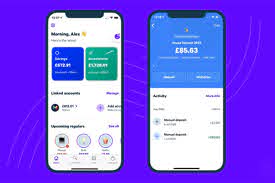New Delhi, Nov 26: Employee insurance start-up Plum on Thursday said it has raised USD 4.1 million (about Rs 30.2 crore) in funding, led by Sequoia Capital India’s Surge and Tanglin Venture Partners.
Existing investors, including Incubate Fund, also participated in the funding round, a statement said.
The funding will be used to expand into new markets, build new distribution channels, hire top talent and further develop products and tech, it added.
The company is part of the fourth cohort of Surge, a bi-annual scale-up program for start-ups in India and Southeast Asia.
Launched in March 2020, Plum aims to make group health insurance affordable and accessible for businesses of all sizes.
India has one of the lowest penetration rates for health insurance in the world, with 18 per cent of urban employees and 14 per cent of rural areas receiving coverage of some kind. Over 50 million Indians fall into poverty every year due to their inability to finance health issues, the statement said.
“One critical illness can make a family fall below the poverty line – so Plum has reimagined the traditional space of healthcare insurance to make it more affordable, simple, and comprehensive…,” Plum co-founder Abhishek Poddar said.
He added that the group insurance health market in India is projected to grow to USD 13.4 billion by 2025, and will see the rise of innovative insurance products not available in advanced markets.
“Plum hopes to provide 700 million people with employer-sponsored insurance and become the de facto health insurance platform for one million corporates in India,” he said.
Plum said it has negotiated and forged new underwriting and fraud detection measures with a wide range of insurance companies, which helps Plum provide businesses and their employees with more flexibility, greater customisation and a high-quality health insurance experience.
Plum has seen 200 per cent growth quarter-on-quarter, securing USD 1 million worth of insurance premiums within the first three quarters of launch. The platform is currently used by more than 200 companies, including Twilio, Label Life, Classplus, Happay and Sunidhi Group. (PTI)
Trending Now
E-Paper


